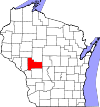Jackson County Criminal Court handles all criminal cases that are filed in Jackson County. See below for more information about criminal cases in Jackson County.
Required Court Appearances in Jackson County
Any required court appearances in Jackson County Criminal Court must be attended by the defendant. Failure to appear in court at your required date and time may result in the judge issuing an arrest warrant.
Jury by Trial Right
The US Constitution (Article 3 along with the 6th Amendment) ensures an accused defendant the right to a jury trial. This applies to crimes that have a $500 fine or a potential sentence of six months in jail (aka Serious Crimes). This right to trial by jury can also be waived by a defendant.

Jackson County Criminal Court
Jackson County Prosecutor
For criminal cases in Jackson County, the prosecutor will be a representative of Jackson County. The Jackson County prosecutor reviews all evidence and ultimately decides whether to file or dismiss charges in the case. Most of the time, the prosecutor has leeway in plea negotiations and determines how the case will be prosecuted.
What happens in Jackson County at an arraignment?
In Jackson County the defendant is brought into court and informed by the judge of the charges that have been filed against them along with informing them of their rights. At this time, the defendant can plead guilty, not guilty or no contest. If the defendant pleads guilty or no contest, there will be no trial and the defendant may be sentenced immediately or at a later date. If the defendant pleads not guilty a trial date is set.
Jackson County Criminal Court locations
Criminal proceedings take place in the Jackson County Criminal Courts. A list of the criminal courts are located here.
What if I can’t afford an attorney?
The 6th Amendment guarantees you the right to an attorney whether or not you can afford one. If you cannot afford one, a public defender will be appointed by the court to represent you.
What is a Plea Agreement?
A plea agreement is a deal made between the prosecution and the defendant in a case, where the defendant agrees to plea guilty to a particular charge in exchange for some concession from the prosecutor. In practice, more than 90% of criminal cases end with a plea agreement.
What is the Burden of Proof?
The term “Burden of Proof” means that the prosecutor is required to prove the guilt of the defendant beyond a reasonable doubt. If the prosecutor cannot provide proof of the defendants guilt, then the judge or jury in a trial must find the defendant not guilty. In the United States the principle innocent until proven guilty derives from this that the defendant is assumed innocent and the prosecution has the burden of proving beyond a reasonable doubt that the defendant is guilty.
Appealing a guilty verdict
A defendant may appeal a guilty verdict to an appellate court. This is not a request to have another trial, but a request for an appellate court to review the case and determine that it was handled in a correct legal manner. There are a number of outcomes in an appeal including an upholding of the conviction, a finding that errors were made resulting in a retrial or resentencing or possibly a complete disimissal of all charges.
If guilty, who sentences the defendant?
If the defendant is found guilty after the trial, the defendent will be sentenced. In some cases, this can occur at the same hearing the defendant is found guilty in court, in other cases a separate hearing will be required. Often the prosecution will request a particular sentence for the defendant and the judge will determine whether to enforce this sentence or impose a different sentence for the defendant.
What is Jury Deliberation?
After both the prosecution and defense have presented their cases, the judge in the case will provide instructions to the jury about what they must decide. The jury will be dismissed to the jury room where they will deliberate about the guilt or innocence of the defendant. After reaching a unaminous decision, they return their decision to the court where it is read aloud in the courtroom. If the jury is unable to reach a unaminous decision, the jury is deadlocked, also known as a hung jury, in which a mistrial will be declared.
I need help for my Jackson County criminal case
The best place to get information about your criminal case is from an attorney. If you cannot afford an attorney, the court will appoint one to represent you which will assist in your case. For general information about your case the Jackson County court clerk is able to provide general information about your specific case (e.g. date/time hearings, mandatory appearance, what will take place and what you will be required to do). The court clerk for Jackson County will NOT be able to provide legal advice for your case, only an attorney can provide legal advice. The court clerk can provide legal information (like the information found on this website) about your case but cannot provide advice about what you should do in your legal manner.
Jackson County Criminal Court Location
-
Jackson County Circuit Court
Address: 307 Main Street, Black River Falls WI 54615
Phone: 715-284-0208 Fax: 715-284-0270